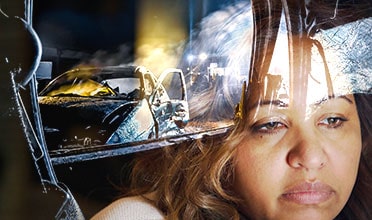When an innocent bystander is killed or injured in a drunk or drugged driving crash, certain expectations fall into place.
We expect the offender to understand the consequences of their actions. We expect the punishment to fit the crime. We expect justice.
Sadly, far too often, there is no justice for victims. After all, as one victim said, it’s called the “criminal” justice system, not the “victim” justice system. The complex and confusing justice system can be difficult and emotionally exhausting to navigate.
So, today, we are sharing seven ways a victim or survivor could find the justice system frustrating.
- The offender may not be arrested immediately – If the offender was injured in a crash they are often taken to the hospital rather than jail. In doing so, many offender’s do not get arrested for quite a while after the crash because police don’t want to have to pay for the medical expenses of the offender if they are taken into custody. That doesn’t mean an arrest won’t happen, it just means it may take some time.
- Offenders often bond out – If you have lost a loved one or been injured, your life dramatically changes from the moment of impact until, well, forever. You begin serving your sentence immediately. However, the same may not be true for the alleged offender. Since our justice system is based on the idea of innocent until proven guilty, offenders often bond out of jail until the trial begins. Victims share that it can be painful to see social media posts by the offenders as they continue living their life while the victims are left to pick up the pieces of what is left of their life.
- The charges – At MADD, we believe and push for charges that reflect how the offender made the choice to drive impaired, transforming their vehicle into a deadly and violent weapon. That’s why we support a felony charge in all crashes that result in a death or bodily injury. However, if the attorney in the case doesn’t feel they have a strong case, lesser charges may be brought. These charges may not even mention alcohol or drugs. The charges can go as low as “reckless driving” or “fleeing the scene of a crime,” a common offender tactic since it makes it more difficult to prove impairment.
- Delays – While not specific to drunk and drugged driving cases, delays can be a main source of frustration for victims and survivors. It is quite common for cases to take two years or even longer to reach the sentencing phase. The delays can and often do occur at every step of the case and can include delays by the alleged offender themselves, attorneys on either sides or even the judge due to scheduling purposes.
- Plea deals– Plea deals are common. This means if an offender was charged with a serious crime, it can become watered down. Few things frustrate a victim or survivor more than watching as justice slips further and further away. Plea deals, although frustrating, can sometimes be a good thing in a case where sympathetic jurors can chip away at a rock solid case, sometimes causing a mistrial or a not guilty verdict.
- Sentencing – Once a case FINALLY gets to the sentencing phase, the frustration may not be over yet. Complacent attitudes about drunk and drugged driving, a misguided attempt not to “ruin” the offender’s life and other factors often lead judges to sentence offenders leniently. In some cases, the law itself provides sentencing guidelines which many victims and survivors don’t find acceptable for the death of a loved one or injury due to a crash.
- Absconded – Sometimes, such as in the case of the Affluenza teen, offenders flee from the consequences of their crimes. This can leave victims with little recourse through the justice system unless the offender is later caught.
A MADD Victim Advocate can help make the criminal justice system less scary, less intimidating and less frustrating by preparing victims for likely scenarios and outcomes. Even if an advocate cannot change the court’s mind, they will stand with a victim, hold their hand and ensure no one has to go through this alone.
If you are a victim or survivor of drunk and drugged driving, please call our national, 24/7 Victim Help Line at 1-877-MADD-HELP.





